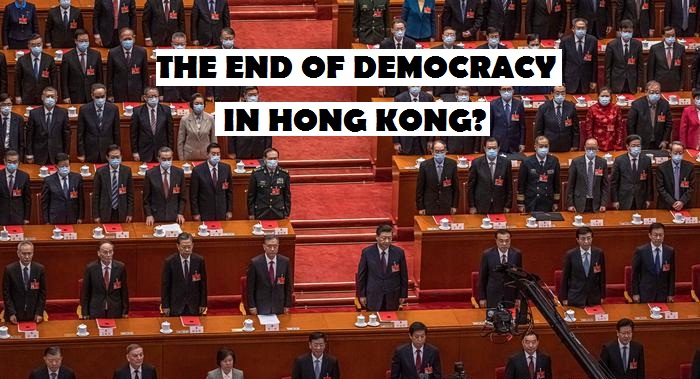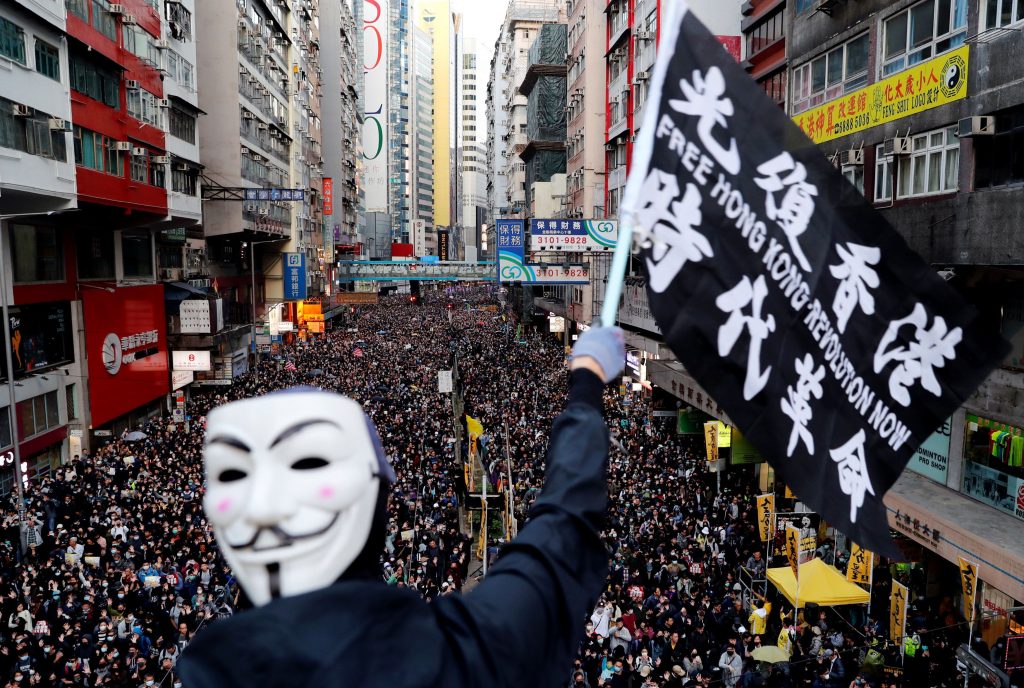
- China’s parliament has voted for sweeping changes to Hong Kong’s electoral system, including powers to veto candidates who are not ‘patriots’
- Hong Kong’s influential Election Committee which is already stacked with Beijing loyalists, will be expanded to 1,500 representatives, up from 1,200
- A separate committee will also be set up to vet the political views of candidates
- China observers says that the new electoral arrangements will make sure that there is no chance for any pro-democracy figure to run in elections and get elected at all
China’s parliament voted Thursday for sweeping changes to Hong Kong’s electoral system, including powers to veto candidates, as Beijing moves to ensure that only “patriots” run the city following huge pro-democracy rallies. During the last few years, Beijing has done everything to dismantle Hong Kong’s democracy. China’s brutality was watched worldwide when it put down the pro-democracy protests in the financial hub .
Last year, the National People’s Congress imposed a national security law on Hong Kong that rekindled the pro-democracy movement. On Thursday, only one member of the 2,896-strong National People’s Congress abstained in the vote to change Hong Kong’s electoral system, which critics say will hammer another nail in the coffin of Hong Kong’s democracy movement.
Since last year, tens of activists have been prosecuted or jailed for protesting against the national security law. Britain handed the territory back to China in 1997. The island nation had enjoyed greater political freedom under the British than the authoritarian mainland under the “one country, two systems” arrangement which was the condition for the transfer.
The decision to change to Hong Kong’s electoral system is to ensure “patriots governing Hong Kong”, Chinese Premier Li Keqiang told reporters after the vote. Senior Chinese officials have made clear that loyalty to the Communist Party will be key to deciding if a Hong Konger is a “patriot”.
Key provisions of the law

Chinese state media on Thursday sketched out some of the key provisions of the law, which will still need to be written and then promulgated under the country’s opaque political system.
Hong Kong’s influential Election Committee, which selects the city’s leader and is already stacked with Beijing loyalists, will be expanded to 1,500 representatives, up from 1,200.
A separate committee will also be set up to vet the political views of candidates while the number of seats in the LegCo — Hong Kong’s legislature — will rise from 70 to 90.
Currently, only 35 seats in the chamber are directly elected and it is not yet clear what the future proportion will be. But analysts said the initial details showed that China plans to reduce the influence of directly elected officials in both the LegCo and the committee that chooses the chief executive.
International Response

UK Foreign Secretary Dominic Raab said the plan would “hollow out the space for democratic debate in Hong Kong, contrary to the promises made by China”.
Raab further said that the move to change HK’s electoral system can only further undermine confidence and trust in China living up to its international responsibilities.
The United States on Thursday denounced China’s approval of sweeping changes to Hong Kong’s electoral system, saying Beijing was stifling democracy in the financial capital.
The rubber-stamp parliament’s move is “a direct attack on autonomy promised to people in Hong Kong under the Sino-British Joint Declaration” before the handover of the territory in 1997, Secretary of State Antony Blinken said.
“These actions deny Hong Kongers a voice in their own governance by limiting political participation, reducing democratic representation and stifling political debate,” Blinken said in a statement.
The European Union has asked China to carefully consider the political and economic implications of any decision to reform the electoral system of Hong Kong that would undermine fundamental freedoms, political pluralism and democratic principles, an EU spokesperson said.
Willy Lam, professor at the Chinese University of Hong Kong’s Centre for China Studies, told AFP that the move is a fail-safe formula to ensure only people deemed patriots will be on those two important bodies.
“The new electoral arrangements will make sure that there is no chance for any pro-democracy figure to run in elections and get elected at all”, he says.
